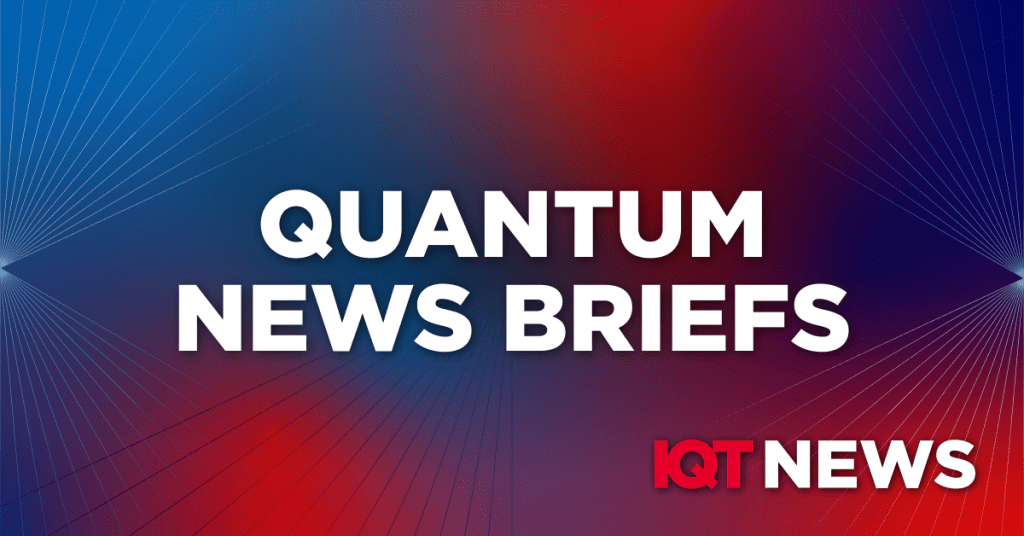Quantum News Briefs: May 15, 2024: press release summaries below:
QuEra Computing Named Finalist in the Science and Technology Category of Fast Company’s 2024 World Changing Ideas Awards
The Fast Company’s 2024 World Changing Ideas Awards celebrate innovation across diverse sectors, with 50 winners, 127 finalists, and 172 honorable mentions from over 1,300 entries. The awards highlighted sustainable initiatives and AI advancements and introduced new categories like beauty and fashion. Notably, QuEra‘s forthcoming error-corrected quantum computer was a finalist in the Science and Technology category, recognized for its scalability and potential to address currently unsolvable problems. Fast Company’s spring issue will feature disruptive ideas from renewable energy to off-grid technologies, showcasing global entries from Korea to Madagascar. This event underscores a worldwide commitment to solving pressing challenges through groundbreaking solutions.
QuEra Doubles Boston Headquarters, Rapidly Expanding Team to Support Growing Demand for On-Premise Quantum Computers
QuEra Computing, a pioneer in neutral-atom quantum computing, announced the expansion of its facilities in Boston due to rapid business growth and increasing demand in the US, Europe, and Asia. The expansion includes a new building, doubling its space at 1284 and 1380 Soldiers Field Rd, to accommodate research, development, and production of its quantum computers and provide space for its expanding team. This growth follows significant deals with the UK’s National Quantum Computing Centre and Japan’s National Institute of Advanced Industrial Science and Technology to deliver advanced quantum computers. QuEra’s advancements have increased the availability of its 256-qubit Aquila system on a major cloud platform and enhanced its team with skilled professionals, reinforcing its commitment to leading in quantum computing innovation.
First cat qubit quantum chip by Alice & Bob now available on Google Cloud Marketplace
Alice & Bob, a leader in fault-tolerant quantum computing, has launched the Boson 4 chip, the first publicly available cat-qubit chip, on Google Cloud Marketplace. This groundbreaking technology, which significantly enhances the stability of quantum bits by extending bit-flip error correction time to over seven minutes—a record for superconducting qubits—marks a crucial step toward reliable quantum computing. Central to Alice & Bob’s strategy, the cat qubit inherently protects against bit-flip errors and requires fewer qubits for fault tolerance, potentially reducing the need by up to 200 times. This availability allows the global scientific community to conduct independent experiments and verify the capabilities of cat qubits, promising transformative applications in fields like chemistry, biotechnology, and cryptography.
D-Wave and the University of Southern California Renew Multiyear Quantum Computing Agreement
D-Wave Quantum Inc. and the University of Southern California (USC) have renewed their partnership, continuing to facilitate cutting-edge quantum computing research at the USC Viterbi School of Engineering. This collaboration extends a decade-long relationship and allows USC to host D-Wave’s Advantage quantum computer, supporting studies in AI, logistics, and other fields through D-Wave’s Leap quantum cloud service. The system features a 5,000+ qubit Advantage processor with Pegasus topology, enhancing USC’s capabilities in tackling complex computational challenges and advancing quantum machine learning. This agreement supports USC’s ambitious computing initiatives and maintains its role as a prominent leader in quantum computing education and research in the U.S.
Germany, Japan and Poland Supercomputing Centers Incorporate NVIDIA’s Quantum Tech
Supercomputing centers in Germany, Japan, and Poland are set to revolutionize their capabilities by integrating Nvidia’s open-source platform to unify quantum and classical processing. This initiative will enable these centers to operate in a hybrid environment, leveraging Nvidia CPUs and GPUs alongside quantum processing units (QPUs). The Jülich Supercomputing Center in Germany plans to integrate an IQM Quantum Computers QPU with its Jupiter supercomputer for advanced chemical simulations and optimization tasks. Similarly, Japan’s ABCI-Q supercomputer is enhancing its Hopper architecture with a QuEra QPU to explore quantum applications in AI, energy, and biology. In Poland, the Poznan Supercomputing and Networking Center has added Orca Computing photonic QPUs to its setup, paving the way for solving complex real-world problems through enhanced computational methods. This integration exemplifies a significant stride in the fusion of quantum and classical computing, aiming to boost the efficiency and scope of computational research and applications.
In Other News: Live Science article: “China creates its largest ever quantum computing chip — and it could be key to building the nation’s own ‘quantum cloud'”
According to a recent Live Science article, China has made significant strides in quantum computing by developing the “Xiaohong,” a 504-qubit superconducting chip, China’s largest quantum computing chip. This chip aims to enhance quantum computer performance globally by improving qubits’ management. Announced by scientists at the Chinese Academy of Sciences, Xiaohong will be integrated into a new quantum computer by QuantumCTek in collaboration with China Telecom Quantum Group. This quantum computer will be accessible to international researchers via a cloud platform, promoting broader application and research in quantum computing. Xiaohong is designed to match the performance of major platforms like IBM’s and is geared toward scaling up quantum computing capabilities rather than directly competing with top U.S. technologies.
In Other News: Investor Place article: “Quantum Leap: 3 Computing Stocks on the Brink of a Breakout”
Leading quantum computing stocks are poised to tap into a burgeoning multi-billion dollar market driven by rapid technological advancements and global investment, highlights a recent Investor Place article. IonQ (IONQ), a leader in cloud-based quantum computing, has seen significant revenue growth, projecting continued strong performance in 2024. Sealsq (LAES) represents a speculative but potentially rewarding investment, targeting key AI, quantum computing, and IoT technologies. Meanwhile, the Defiance Quantum ETF (QTUM) offers diversified exposure to the sector with a robust five-year return of 142%, outperforming major indexes like the S&P 500. These stocks and ETFs highlight the increasing integration of quantum technologies in commercial and research applications, signaling a strong future for the quantum computing market.
